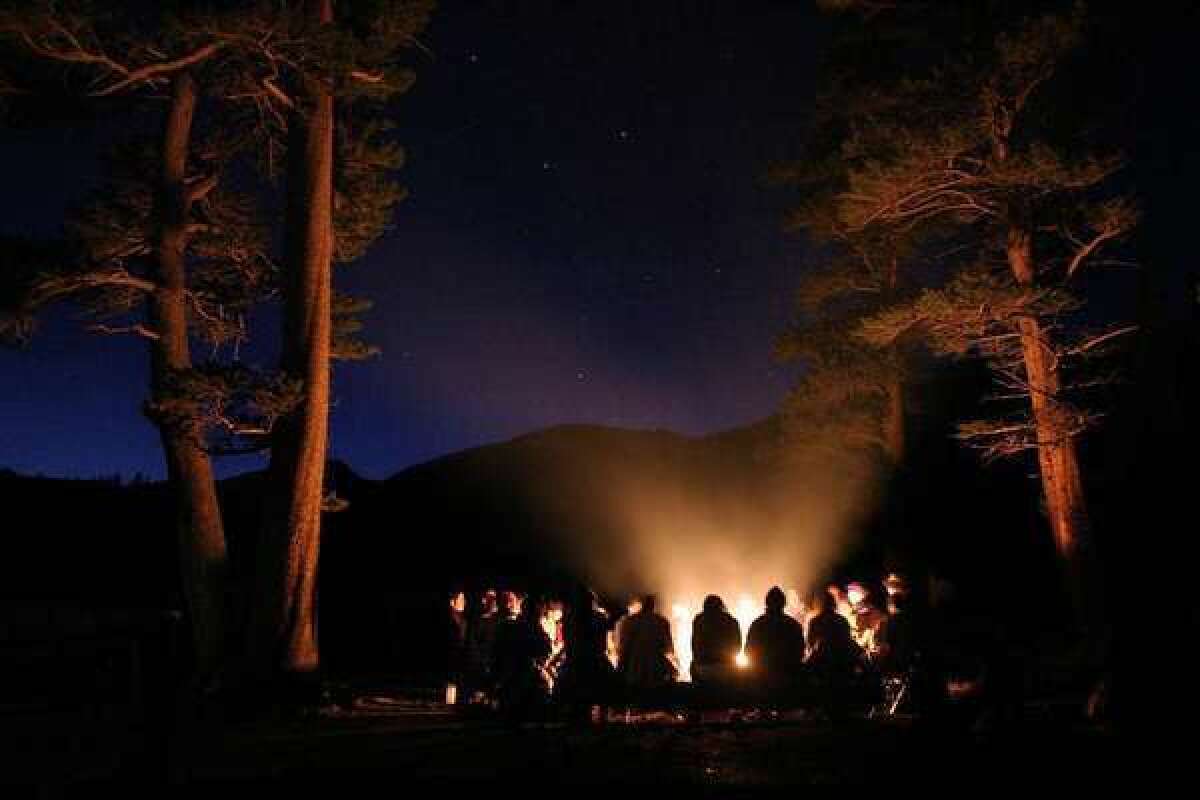Communing with nature can recharge your creativity, study finds

- Share via
Go take a hike – it’s good for your brain.
So says a new study that supports something called Attention Restoration Theory, which holds that exposure to nature can replenish our cognitive reserves when they are worn out by overuse. And if you live a modern urban or suburban life, your cognitive reserves are surely depleted: A typical teenager spends more than 7.5 hours per day juggling a computer, cellphone, TV and other media, and the number is surely higher for a typical adult, according to the study:
“Our modern society is filled with sudden events (sirens, horns, ringing phones, alarms, televisions, etc.) that hijack attention. By contrast, natural environments are associated with a gentle, soft fascination, allowing the executive attentional system to replenish.”
If that sounds like a far-fetched ad for the Sierra Club, consider that studies have found that taking a hike or otherwise spending some time in nature has been shown to help people do better on laboratory tests (like controlling the perceived rotation of a Necker Cube) as well as real-life tasks, like proof reading.
If spending a few hours in nature is a good thing, what about a few days? That was the question psychologists from the University of Kansas and the University of Utah sought to answer.
So the researchers turned to 26 women and 30 men who took Outward Bound wilderness expeditions to Alaska, Colorado, Maine or Washington. Each trip lasted for four to six days, during which time any use of technology was strictly forbidden.
To test creativity, the psychologists used the Remote Associates Test, which asks subjects to find the link between related cues (for instance, “coin,” “quick” and “spoon” all go with the word “silver”). Study participants were asked to solve 10 of these puzzles, and their score was the number they got correct. A total of 24 backpackers took the test before they started their journeys, and 32 people took the test on the morning of their fourth day in.
How did they do?
Those who took the test before they had sojourned with nature answered 4.14 of the “questions” correctly, on average, while those who took the test after three days in the wilderness got an average of 6.08 “questions” right. That may not sound like a big difference, but it’s an increase of 50%, the study authors noted.
The results demonstrate “that higher-order cognitive skills improve with sustained exposure to a natural environment,” the researchers wrote.
But that doesn’t necessarily mean that exposure to nature deserves all of the credit for the creativity boost. Spending time in a natural environment probably does help recharge the brain. But so does taking a break from all of the high-tech gadgets and other attention-grabbing distractions that dominate our lives when we are not communing with nature, they noted.
You can find a link to the study from the PLoS One website.
(And in case you were wondering, I am not related to Stephen Kaplan and Rachel Kaplan of the University of Michigan, who have long studied the psychological benefits of spending time in nature and are credited with developing Attention Restoration Theory.)
Return to the Booster Shots blog.
Follow me on Twitter @LATkarenkaplan





